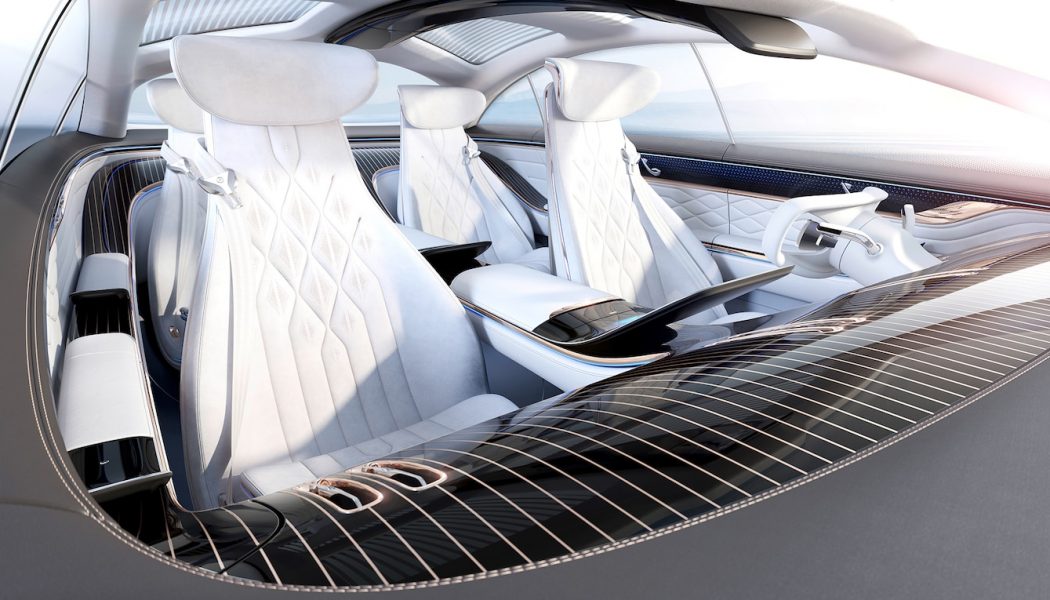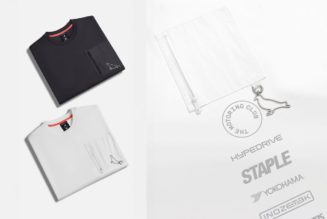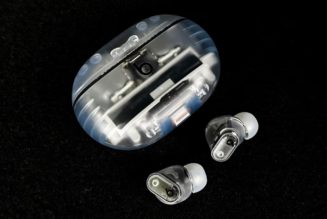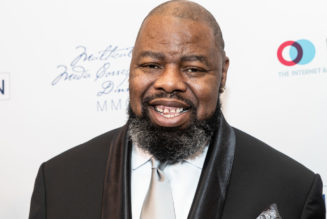Ola Källenius took over as Daimler AG’s chairman of the board of management in 2019. His tenure has been marked by the launch of high-tech features within the company’s vehicles, the need to cut fixed costs, and a pandemic that could have easily thrown everything off course. In his first media roundtable of 2021, Källenius focused on the premiere of the massive MBUX Hyperscreen that constitutes the dashboard of the new 2022 Mercedes-Benz EQS flagship electric vehicle. Mercedes largely designed the EQ vehicle family around the massive screen, and the digital services such a screen makes possible are seen as a vital revenue stream going forward.
After the Hyperscreen launches in the EQS, will it roll out across the lineup? The EQS will be the first on a fully dedicated, large luxury electric car. And that will be a family of at least four vehicles. All those four will have access to the Hyperscreen.
What about other brands and vehicles? This is a big physical part literally designed for the interior of those vehicles. So, at the moment, it will be [only for] the family of electric vehicles that come off of that architecture.
Is it standard equipment? It’s not standard equipment; it is an option. There will be another version, which will also be pretty fantastic, but this is so spectacular that this will be a high-end option. We expect a very high take rate.
Is this being driven by the tech business or coming from consumers asking for it? Since we introduced the first generation of MBUX, which was a game-changer, the take rate has gone up significantly. [Customers] want the most beautiful, high-tech screen, the physical piece like a piece of art. But as digital content has increased, customers are also looking at buying lots more content.
Will Mercedes partner with streaming services such as Netflix and Hulu to provide entertainment content? Yes, we are targeting music and streaming services. Not all of that is available yet in the car world, but we are ready to go and are talking to all of them. For music, it is already there, and on movies, it will come.
How much work was done in-house? We are the architects, and we do a lot of it in-house, especially artificial intelligence features. The whole software stack we are gradually building up. The Mercedes-Benz OS will essentially be an in-house effort, but that doesn’t mean you should reinvent the wheel on everything. We have strong tech partners in many areas to help us do this, but we remain the architects.
What are some of the revenue streams this will open? At the point of sale, when you buy different packages of this MBUX, that is still the biggest revenue source right now. Customers also make over-the-air downloads. There are the obvious things like live traffic services. There is a growing pool of revenue and profit in subscription[s]. We’re looking forward to this growing significantly. In the strategy we presented in the fall for Mercedes as a whole, growing digital and recurring revenues is one of the pillars. We’re targeting about € 1 billion [earnings before interest and taxes] by the year 2025 for this.
How much of your overall cost-reduction efforts are to develop technology such as this? In terms of overall cost-down efforts, lowering our fixed costs, also lowering the break-even point of our business as a whole, we accelerated those efforts in 2020. We took a new look at this on a transformation plan that we had decided upon by the end of 2019 and doubled down on some of those efforts, and made a very big step in the right direction in 2020. But this is not something you stop. You don’t do it once. It’s like mowing the lawn. You cannot stop.
How far along are you on your cost-reduction targets? We have a significant efficiency program put in place up until 2025 because we’re in the transformation of the auto industry. So we’re investing at levels like never before into new technologies, electrification of a whole fleet. It is a dual effort, investing at the highest level ever and at the same time doubling down on efficiencies, and we’re on track for that.
Are there more layoffs to come? Technically we’re not laying people off. We are offering severance packages to people that want that, and we’re using attrition and other means. In some areas, such as the software side, we’re hiring.










